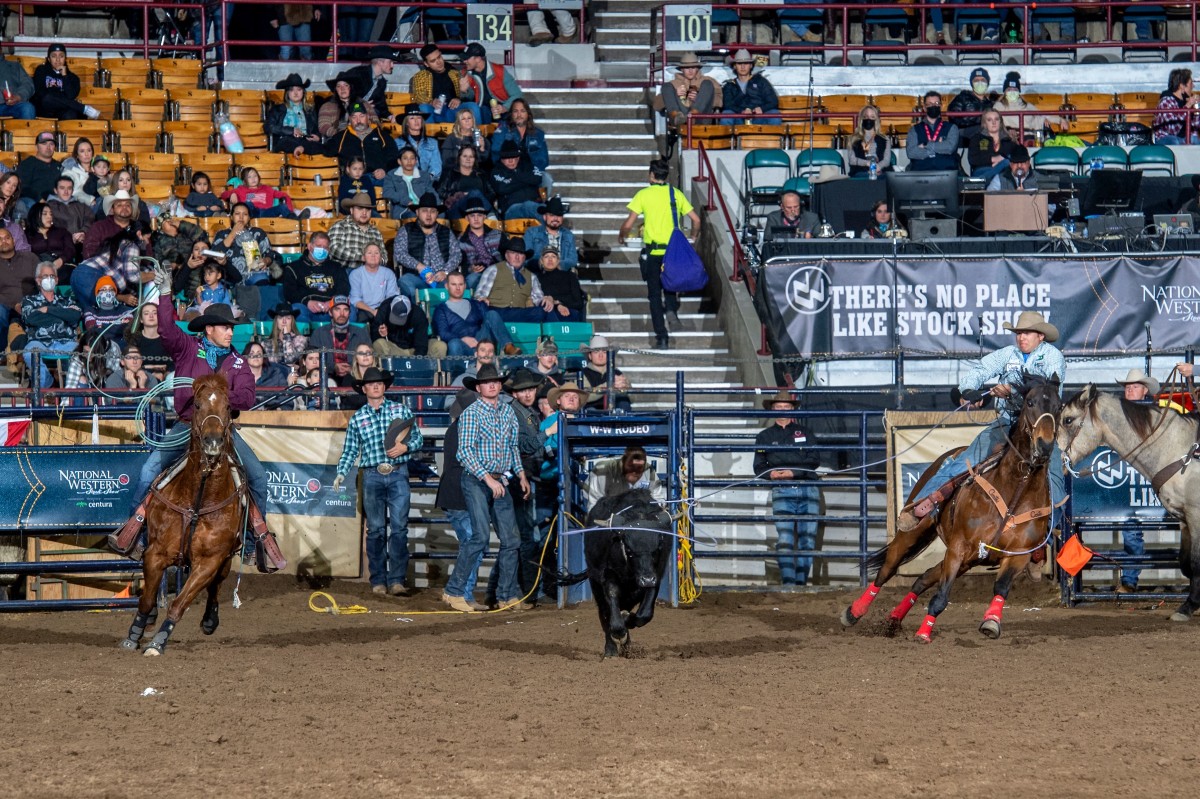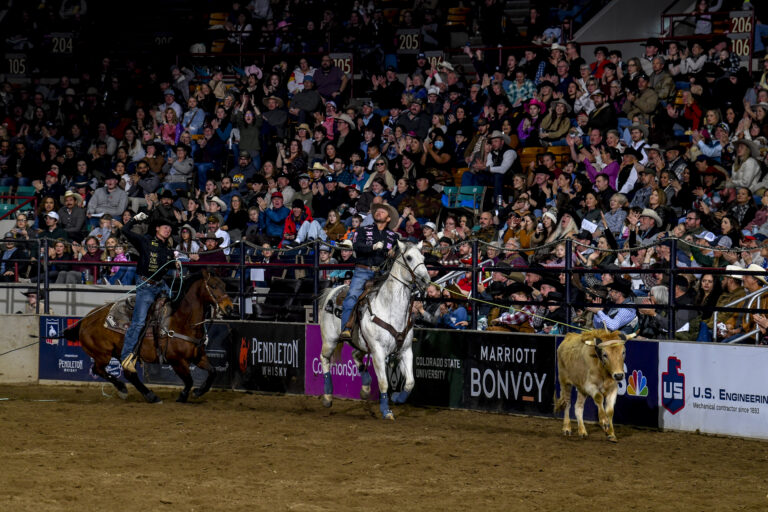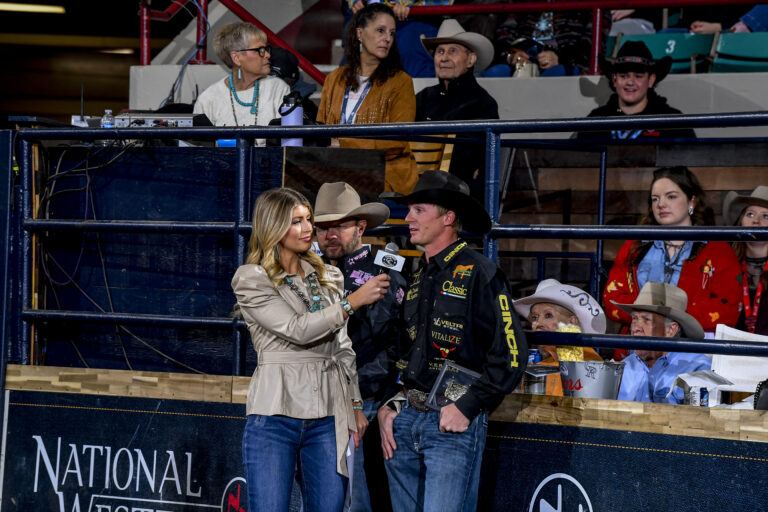With four performances left to play out today and tomorrow before Saturday’s three-perf Semifinals at the January 13-23 National Western Stock Show & Rodeo in Denver, we thought we’d give you all an update on who’s winning what and how this particular format works. As we wind our way to Sunday’s Finals in the Mile High City, the team roping highlights include Dustin Egusquiza and Travis Graves leading the two-steer average that determines who advances to the Semifinals; Levi Simpson and Ryan Motes leading Round 1 with a 4.9-second run; and brand new Round-2 leaders Andrew Ward and Buddy Hawkins, who were 4.3 last night on their second steer.
The boiled-down basics on this year’s National Western format includes every contestant competing in two full rounds. The top 24 based on the two-head average advance to Saturday’s three Semifinals performances—eight contestants per perf; which perf determined by random draw—though no money is paid in the two-head average. The top four in each Semifinals performance then move on to Sunday’s sudden-death Finals to determine the 2022 Denver champs.
Just for kicks, I asked the heeling half of the average-leading team—Travis “TG” Graves—how he and Dustin approached the dilemma between trying to win round money (because that’s the only way to cash a check in the first two long rounds) and punching an all-important ticket to the Semifinals (which is only determined by the two-head average).
Read: 115th National Western Stock Show Postponed Until January 2022
“We went to Denver thinking that if we had a good one, we’d go ahead and try to win something,” TG said. “It’s all about the rounds, and to win a lot of money when it’s over, you’re going to need to win something along the way.
“Because we advance by way of the two-head average, I do think they should pay on the two-head average and reward people for roping to advance. But that’s how it is, and it’s all one-headers from here.”
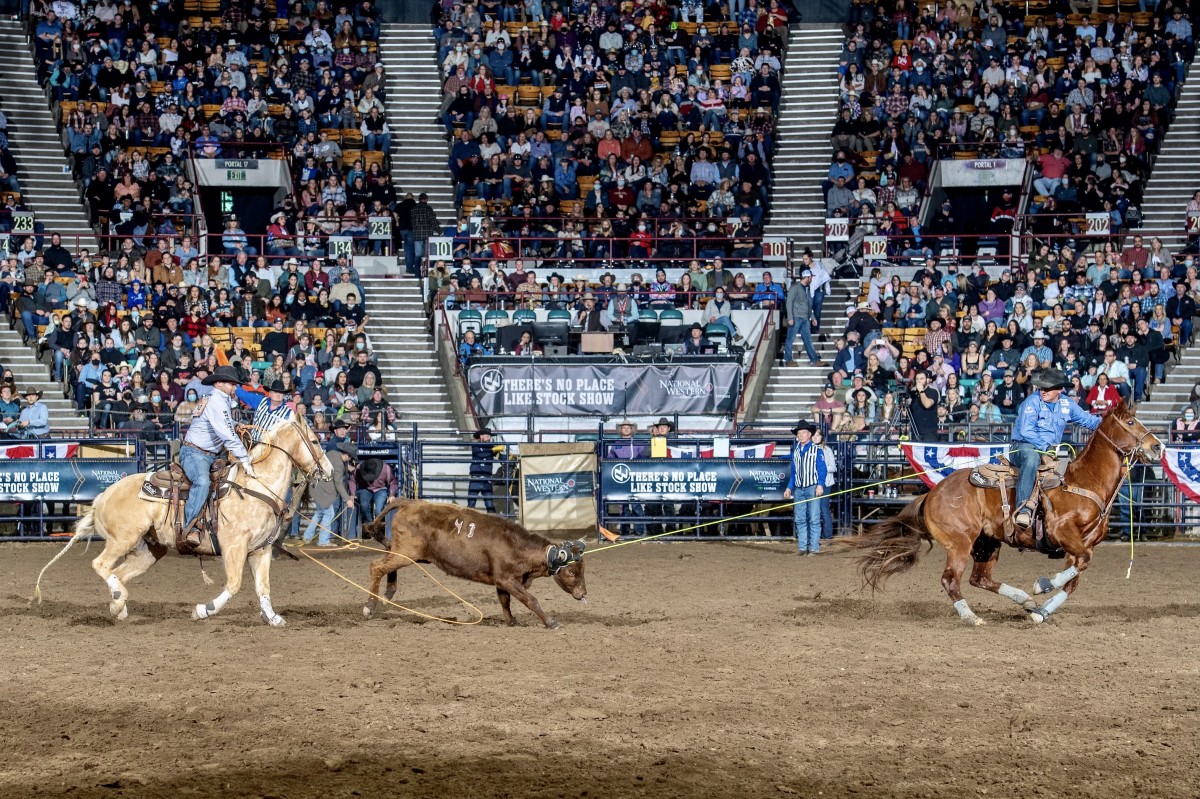
Levi Simpson and Ryan Motes were 4.9 on their first steer in the matinee performance on January 15. They had a barrier on their second steer that night, and are now left to sweat.
“I’m going to figure out Friday night after the team roping if I made the Saturday Semifinals or not,” Motes said. “The first perf of the Semifinals is at 11 a.m. Saturday morning and it’s a 12-hour drive to Denver. We were 14th after the first five sets, with six performances to go (and he thinks they’re 18th or 19th now, after yesterday’s two perfs), so we’re going to be borderline and it’s going to be close.
“It’s supposed to snow, so I need to either send a horse before I know if I made it or not, or fly and get on something else.”
So many new formats in rodeo these days. It’s hard to find a cowboy who doesn’t strongly prefer the time-tested tradition of, say, two long rounds and a short. Most agree that after factoring in when you get up and what you draw—which are completely out of contestant control and a matter of chance—that old-school format is most likely to result in the best man or woman winning.
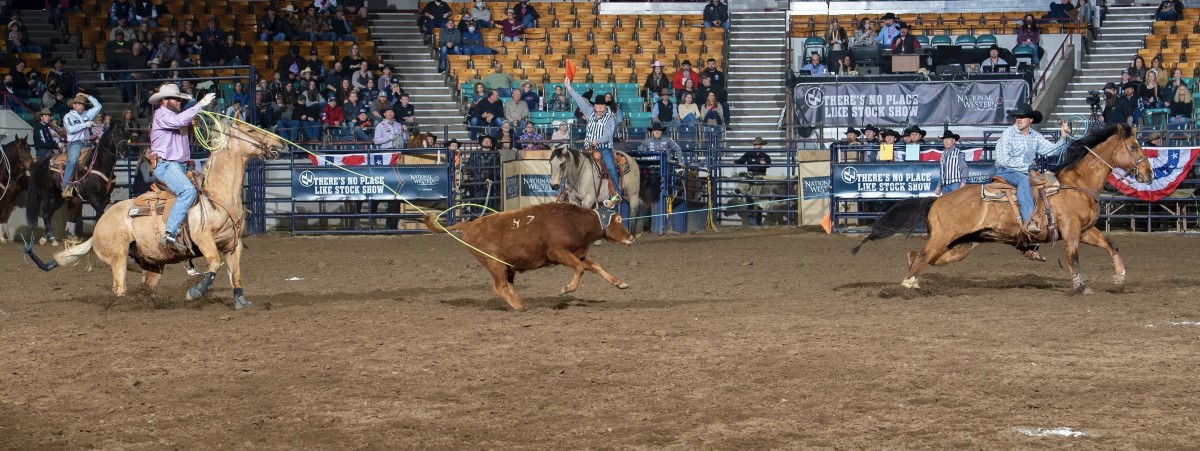
“I like two and a short better, but there are always pros, cons and compromises to consider,” Motes noted. “A lot of the steers have been pretty tricky at Denver, and you advance on two, so it makes for some bad watching and a lot of longer runs when so many guys are just trying to catch to make it back now.
“The thing is, there’s $53,875 added in the team roping at Denver. That’s good added money. But if you split the money up too many ways, it makes it tough. If Denver paid every set and the average, the money would be split up so many ways that it wouldn’t work. It takes a lot of added money to pull off what San Antonio and Houston do, including paying the winners in all three preliminary rounds at Houston, where you only have to beat the guys in your set to get paid.”
To be clear, “I’m not a Denver hater, and we all appreciate that they’ve increased their added money in recent times,” Motes continued. “I really hope I have a reason to make a second trip to Denver. The toughest part will be the tight turnaround, with the last perf of the long round so close to the first Semifinals set.
“Denver aside and just generally speaking, I’m not a fan of top-loaded payoffs. It’s hard to make a living when they do that. I won over $400,000 when Coleman (Proctor) and I won The American (in 2019), but I think fourth place only paid $10,000. That’s not good for guys trying to make a living at this.”
